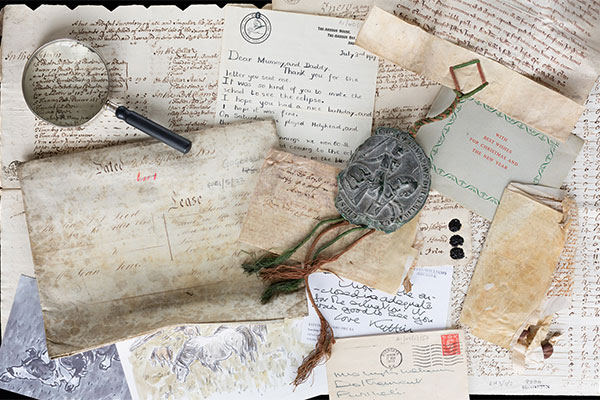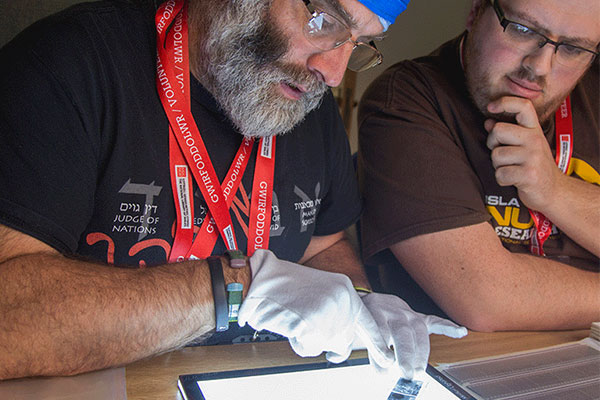With the second anniversary of Russia’s invasion of Ukraine approaching on the 24th of February, this is a timely opportunity to focus on a book titled History of the origin of the war with Russia from the Gladstone Pamphlet Collection in the Library. The collection comprises tracts that were sent to Gladstone during his periods as Prime Minister and member of the Opposition. The author of the book is Henry Richard, a Welshman from Tregaron and an MP for Merthyr Tydfil. Richard was Secretary of the Peace Society between 1848 and 1884 and a strong advocate for international arbitration to prevent conflicts between nations.

The short volume is a selection of his Parliamentary contributions which explain the origin and background of the Crimean War that took place from 1853 to 1856. It is thought that the book was first published in around 1875, between Gladstone’s second and third terms as Prime Minister. The title page shows that it was sent to Gladstone by Richard personally. The pages contain extensive marginal markings by Gladstone throughout. This is direct evidence that the causes of tensions with Russia exercised Gladstone’s mind greatly, as it does with our political leaders today.
Richard explains that the Crimean war started because of disputes about the ownership of Jerusalem’s Holy sites. Palestine was part of the Ottoman Empire run by Turkey, but the Holy sites came under the control of various Christian denominations and the Turks. The Greek Orthodox Church (supported by Russia) controlled one site and shared another three sites, while the Catholic church (supported by France) controlled four sites and shared another three with the Greeks, Armenian, Copts and others. Three sites were taken from the Christians altogether and were controlled by the Turks. Although an agreement was initially reached between the relevant nations through the ‘Vienna Note‘, Turkey subsequently amended the agreement. This resulted in its rejection by Russia. Soon afterwards, war broke out between Russia on one side and France, Britain and Ottoman Turkey on the other side.
Henry Richard thought that the war was a grave mistake as it strengthened the hand of the Turkish Ottoman empire against the Christian communities who lived in the Ottoman territories. These Christians comprised around 12 million Greek Orthodox Christians. The war did indeed succeed in weakening the influence of Russia significantly, but Richard believed that it upheld the Turkish Ottoman dominion over the Christian population of Europe too. The war sowed the seeds of future conflicts between Russia and the West. Conflicts which we are currently witnessing again today.
We can tell from the marginal inscriptions that Gladstone agreed with many points that Richard makes, for example highlighting that the people of Turkey “though at heart desirous of peace, were reluctant to forfeit their share of the popularity enjoyed by the votaries of war”. He also highlights a sentence which says that the interests of England and Russia in Turkey are identical, suggesting that both countries could work together in the event of the demise of the Ottoman Empire. Can you, the reader, read Gladstone’s thoughts through his markings and handwritten notes in the photographs shown?
Henry Richard was certainly a visionary of his time. Such strong advocates for peace and arbitration are urgently needed today.
Hywel Lloyd
Assistant Librarian
Category: Article










